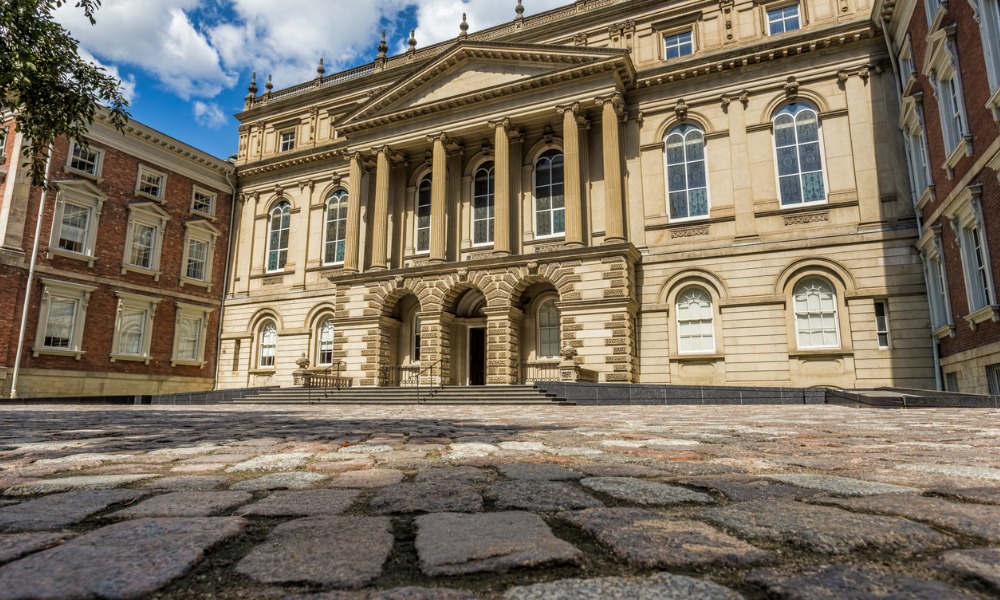
Court highlights need for transparency with government misconduct claims, Muslim group warns of risks

The Ontario Court of Appeal declined Monday to seal evidence set to be introduced in a case involving tax issues, despite protests by a Muslim organization that leaving the evidence unsealed could put its members and other Muslim Canadians at risk of serious harm.
Citing the Supreme Court of Canada’s 2021 decision in Sherman Estate v. Donovan, the OCA said, “There is a strong presumption in favour of open courts” and that restrictions on openness should be limited.
“We affirm that it is particularly important in litigation involving allegations of government wrongdoing that the public have unfettered access to the relevant court record,” the OCA said. The court ordered redactions to some of the evidence instead.
Monday’s decision was authored by Justice Lorne Sossin. Justices Patrick Monahan and Lene Madsen concurred.
Justin Safayeni, a partner at Stockwoods LLP who is not involved in the case, told Law Times the OCA’s decision is noteworthy because few appellate decisions consider the sealing test outlined in Sherman. The OCA noted that that test favours the principle of open courts and that “presumption can be limited only in exceptional circumstances where there is a demonstrated and serious risk to an important competing public interest.”
The OCA’s decision to have the parties redact the evidence instead of sealing it in its entirety is “an important and faithful application of the open court principle,” Safayeni says. “I think it sends a clear message to lower courts, at least in Ontario, that especially when dealing with allegations of government wrongdoing, they should strive for a solution that doesn’t involve stealing entire records.”
The dispute began when the Canada Revenue Agency audited the Muslim Association of Canada (MAC) and came to the preliminary conclusion of suspending the organization’s status as a charity. The organization describes itself as Canada’s largest Muslim charity, serving more than 150,000 members of the Canadian Muslim community. Part of its mandate is to “uphold a balanced and mainstream message of Islam that promotes peace and understanding and that rejects all forms of violence and extremism,” according to a decision in the case by the Ontario Superior Court of Justice.
MAC challenged the CRA’s decision to audit and recommendation to withdraw the organization’s status as a charity. The organization alleged the audit infringed on its rights to freedom of religion, freedom of expression, freedom from discrimination, and freedom of association under the Charter of Rights and Freedoms. MAC said these infringements occurred with the assessment process the CRA uses to select charities for audit, the agency’s decision to audit MAC, and the agency’s preliminary conclusion.
MAC alleged that the division of the CRA responsible for preventing terrorist groups from abusing registered charities, the Review and Analysis division, is biased because it identifies Muslims with terrorist financing risk. The organization also cited a CBC News story that reported that between 2008 and 2015, 75 percent of the charities whose charitable status was revoked by RAD were Muslim.
The lower court judge dismissed MAC’s challenge, writing that while he sympathized with the organization’s arguments, “the lack of a final decision and the absence of benchmarks against which to measure CRA’s conduct” meant the case was premature.
In July, the OCA dismissed MAC’s appeal of the lower court ruling. However, the court invited the parties to make submissions on whether the evidence they wanted to introduce on appeal – which included affidavits from a CRA official and a member of MAC’s board of directors, and the CRA’s final audit decision – should be sealed.
While MAC argued that leaving the evidence unsealed would pose “a serious risk of harm to the dignity and/or physical safety of its members and of all Muslim Canadians,” the CRA countered that sealing the evidence would be inconsistent with the open court principle. The CRA added that the safety risks MAC identified could be addressed by redacting the evidence.
The OCA agreed with the CRA, stating that while the risks that MAC raised were important, the organization could achieve its goal of protecting community members by making limited redactions to the CRA’s final audit. However, the court declined to order redactions to documents attached to the MCA board member’s affidavit because those documents are already in the public record.
In a statement, the CRA said, "The courts provide Canadians with a further independent review of disputed issues, as well as court decisions that serve to clarify the law or resolve disputes between the Canada Revenue Agency (CRA) and taxpayers. The CRA welcomes the Court of Appeal for Ontario decision."
Counsel for MAC did not respond to a request for comment.
Editor's Note: This story was updated on September 10 to include comments from the CRA.